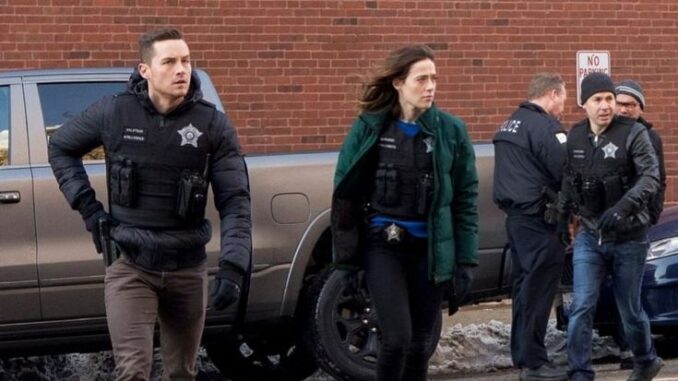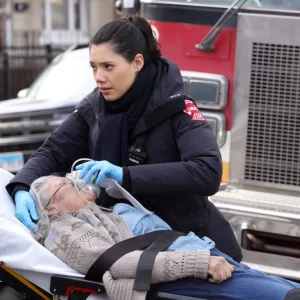In a series known for its gritty realism and heartbreaking plot twists, few storylines in Chicago P.D. have left fans more shaken than the fate of Detective Alvin “Al” Olinsky. Played with remarkable gravitas by Elias Koteas, Olinsky was a core member of the Intelligence Unit and a moral anchor in the often morally gray world of Hank Voight’s team. But as the show entered its fifth season, fans were blindsided by a decision that still sparks debate years later: the shocking and tragic death of Al.

Al and Voight’s bond was at the heart of the show. Their friendship went beyond the professional; they were brothers-in-arms, bound by a complicated code of honor. But that bond would ultimately play a key role in Al’s tragic downfall. The trouble began brewing at the end of Season 4 and escalated in Season 5. The Intelligence Unit was still dealing with the fallout from the death of Voight’s son, Justin, who had been murdered in Season 3. Voight, consumed by grief and vengeance, took justice into his own hands—by killing the man responsible.
That act set off a chain reaction. While Voight managed to cover his tracks (as he had many times before), the murder didn’t disappear into thin air. Eventually, suspicion began to swirl, and the investigation took a horrifying turn when evidence started pointing not at Voight—but at Al Olinsky. In an ultimate act of loyalty, Al refused to betray his partner. Even as he was questioned, arrested, and ultimately charged with the murder, he kept his silence. For fans, it was heartbreaking to watch a man with such integrity take the fall for something he didn’t do—all to protect someone he considered family.

In interviews following the Season 5 finale, showrunner Rick Eid explained the decision. According to Eid, Al’s death wasn’t a reflection of actor Elias Koteas or his performance—in fact, he praised Koteas as a “consummate professional.” Instead, the writers wanted to show the real-world consequences of Voight’s actions. “Voight has done a lot of morally questionable things,” Eid said. “We wanted to show that those choices don’t come without cost.” In this case, the cost was his best friend. While the narrative logic may have made sense to the writers, many fans were unconvinced. Killing off a beloved character for the sake of a dramatic twist didn’t sit well with everyone. Some argued it was an unnecessary tragedy, while others saw it as a brave storytelling move that raised the stakes.
Elias Koteas left the series without much fanfare, choosing not to make a public statement for some time. When he did eventually speak out, he thanked the fans for their support and reflected on his time on the show with gratitude. The cast, particularly Jason Beghe (Voight), expressed deep sadness at Koteas’ departure. In interviews, Beghe admitted the storyline was one of the hardest he’d ever filmed. “It was gut-wrenching,” he said. “I love Elias like a brother. Voight loved Al like a brother. So those tears you saw on screen? They were real.”
Al’s death left a void in the Intelligence Unit that no new character could quite fill. It also had lasting emotional consequences for Voight. While Voight has always operated in moral ambiguity, losing Al forced him to reckon with the weight of his choices. In subsequent seasons, viewers saw a more reflective Voight—still tough, still stubborn, but clearly haunted.
The show did its best to honor Al’s memory in the episodes that followed. His name would come up in conversations. His desk remained untouched for a time. And in quieter moments, the camera would linger just a beat longer on Voight’s face—reminding us that some wounds never heal.
Though Alvin Olinsky’s time on Chicago P.D. ended in tragedy, his presence continues to loom large. He represented the old-school cop—flawed, gritty, loyal to the bone—and his death marked the end of an era. More than just a character, Al symbolized the emotional backbone of the Intelligence Unit. For many fans, his story remains one of the most powerful arcs in the One Chicago universe. His loyalty, his silence, and ultimately his sacrifice, made Al a legend—and ensured that he would never be forgotten.





